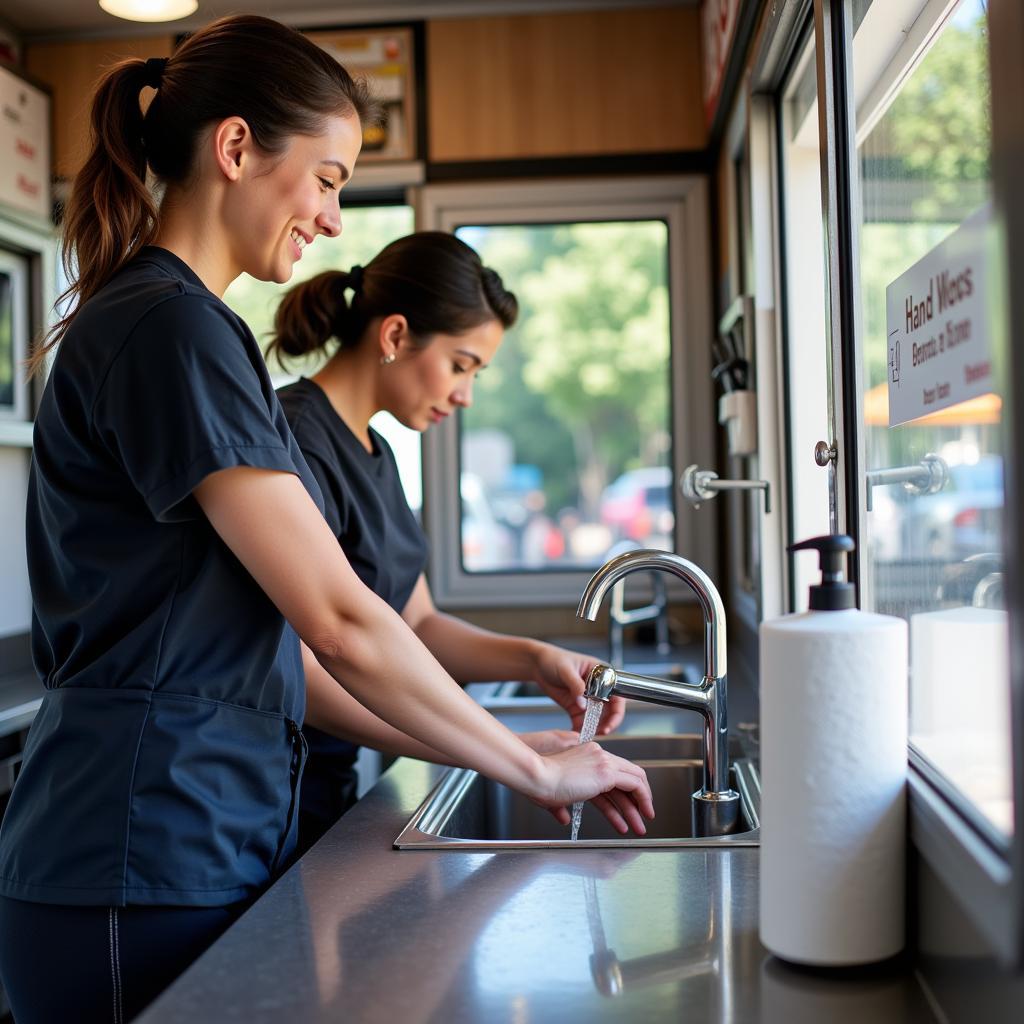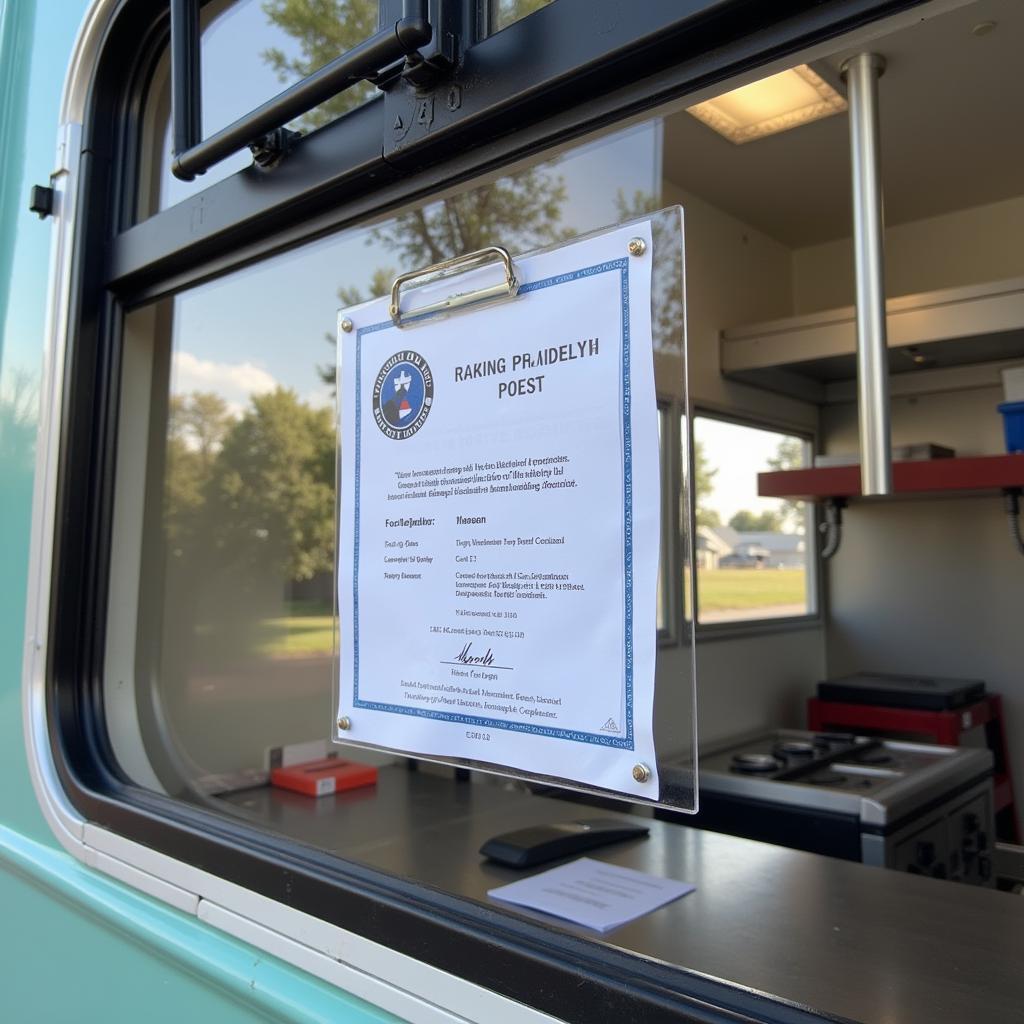Navigating the world of food truck ownership in Florida is exciting, but it comes with a crucial step: passing your food truck inspection. Knowing the ins and outs of the Florida Food Truck Inspection Checklist ensures you’re not just serving up delicious food but doing so safely and within regulations. Let’s dive into everything you need to know to ace that inspection and get rolling toward success.
Understanding the Importance of Food Truck Inspections
Before we even get to the checklist, it’s important to understand why these inspections are in place. Simply put, food truck inspections protect public health. By enforcing strict food safety standards, the Florida Department of Business and Professional Regulation (DBPR) ensures that every food truck operating within the state maintains a safe environment for preparing and serving food.
These inspections cover a wide range of areas, from food handling and temperature control to sanitation and equipment maintenance. Understanding the “why” behind each item on the checklist can help you approach food safety with a proactive and responsible mindset.
A Closer Look at the Florida Food Truck Inspection Checklist
While the specific requirements might vary slightly by county, the core elements of the Florida food truck inspection checklist remain consistent. Here’s a breakdown of the key areas and items inspectors will focus on:
1. Food Safety Practices
This section delves into the heart of food safety, ensuring your food handling practices minimize the risk of foodborne illnesses.
- Handwashing: Adequate handwashing stations, complete with soap, warm water, and paper towels, are non-negotiable.
- Food Handling: Inspectors will observe how food is stored, prepared, and served, ensuring safe practices are followed at every step.
- Cross-Contamination Prevention: Proper storage of raw meats, separate cutting boards, and color-coded utensils are just a few ways to demonstrate your commitment to preventing cross-contamination.
 Food Safety Practices Inside a Florida Food Truck
Food Safety Practices Inside a Florida Food Truck
2. Temperature Control
Maintaining proper food temperatures is paramount in preventing bacterial growth.
- Refrigeration: Inspectors will check the temperature of your refrigerators and freezers, ensuring they are cold enough to keep food out of the “danger zone.”
- Cooking Temperatures: Accurate thermometers are essential for verifying that food is cooked to the appropriate internal temperatures, eliminating harmful bacteria.
- Holding Temperatures: Food held for service, whether hot or cold, must be kept at specific temperature ranges to prevent bacterial growth.
3. Sanitation and Cleanliness
A clean food truck is a safe food truck. Inspectors pay close attention to the overall cleanliness of your operation.
- Food Contact Surfaces: All surfaces that come into contact with food, including cutting boards, utensils, and countertops, must be thoroughly cleaned and sanitized.
- Dishwashing: Inspectors will verify that you have a proper system for washing, rinsing, and sanitizing dishes and utensils.
- Waste Disposal: Proper waste disposal is crucial for maintaining a sanitary environment and preventing pest infestations.
 Clean Food Prep Area in Florida Food Truck
Clean Food Prep Area in Florida Food Truck
4. Equipment Maintenance
Well-maintained equipment is not just about efficiency; it’s also about safety.
- Cooking Equipment: Inspectors will check that all cooking equipment, including grills, fryers, and ovens, is in good working order.
- Refrigeration and Freezing Equipment: Properly functioning refrigeration and freezing units are essential for maintaining food safety.
- Plumbing and Ventilation: Inspectors will ensure your plumbing and ventilation systems meet the required standards, preventing contamination and promoting a safe working environment.
5. Water Supply and Waste Disposal
Safe and adequate water supply and proper waste disposal are fundamental aspects of food truck operation.
- Water Source: You’ll need to demonstrate access to a potable water source for all your operational needs.
- Wastewater Disposal: A proper system for disposing of wastewater, including gray water from sinks, is mandatory.
- Trash and Garbage: Inspectors will check for appropriate storage and disposal of trash and garbage to prevent pest attraction and maintain sanitation.
Expert Insights: Tips from a Seasoned Food Truck Inspector
To give you an even better understanding, we spoke with Robert Mendez, a food safety inspector with over 15 years of experience in Florida. Here are his top tips for food truck owners:
“Don’t wait for the inspection to find problems. Regularly review the checklist yourself and make corrections promptly. This not only keeps you in compliance but also builds good habits.”
“Invest in training for yourself and your staff. A well-trained team is your best defense against foodborne illnesses and ensures a smoother inspection process.”
“Communication is key. If you have any questions or concerns, don’t hesitate to reach out to your local DBPR office. We are here to help you operate safely and successfully.”
Acing Your Florida Food Truck Inspection: Preparation is Key
Passing your Florida food truck inspection doesn’t have to be a daunting task. By understanding the requirements, implementing best practices, and embracing a proactive approach to food safety, you can confidently serve your culinary creations while safeguarding public health.
Remember, your food truck is an extension of your passion for food. By prioritizing safety and cleanliness, you’re not just meeting regulations—you’re building trust with your customers and ensuring a successful journey in the Florida food truck industry.
Frequently Asked Questions about Florida Food Truck Inspections
1. How Often Are Food Trucks Inspected in Florida?
Food trucks in Florida are typically inspected twice a year. However, the frequency can vary based on your county’s regulations or if any issues arise from previous inspections.
2. What Happens If I Fail the Inspection?
If your food truck doesn’t meet the required standards, you may be issued a warning or, in more serious cases, a citation or even closure. You’ll typically be given a specific timeframe to correct the violations and schedule a follow-up inspection.
3. Where Can I Find the Full Florida Food Truck Inspection Checklist?
The complete and most up-to-date checklist can be found on the Florida DBPR website. Make it a habit to refer to their official resources for accurate and current information.
4. Can I Request a Consultation with a Food Safety Inspector Before My Inspection?
While not always mandatory, many counties in Florida encourage pre-opening inspections or consultations. This allows you to familiarize yourself with the process and address any potential concerns before your official inspection. Contact your local DBPR office to inquire about this option.
5. Do I Need a Separate Food Safety Certification to Operate a Food Truck in Florida?
Yes, at least one employee present at all times during operation must have a valid food manager certification recognized by the state of Florida. This certification demonstrates a comprehensive understanding of food safety practices and regulations.
 Florida Food Truck Inspection Certificate Displayed
Florida Food Truck Inspection Certificate Displayed
Need Help Navigating Your Food Truck Journey?
Launching and running a food truck in Florida is an exciting venture. At Mina Cones, we understand the passion and dedication it takes to succeed in the culinary world. If you’re feeling overwhelmed by the inspection process, menu planning, or any aspect of bringing your food truck dream to life, don’t hesitate to reach out. Our team of experts is here to provide the guidance and support you need every step of the way.
Contact us today at 02437655121, email us at minacones@gmail.com, or visit us at 3PGH+8R9, ĐT70A, thôn Trung, Bắc Từ Liêm, Hà Nội, Việt Nam. We have a dedicated customer support team available 24/7 to answer your questions and help you turn your food truck vision into a delicious reality!